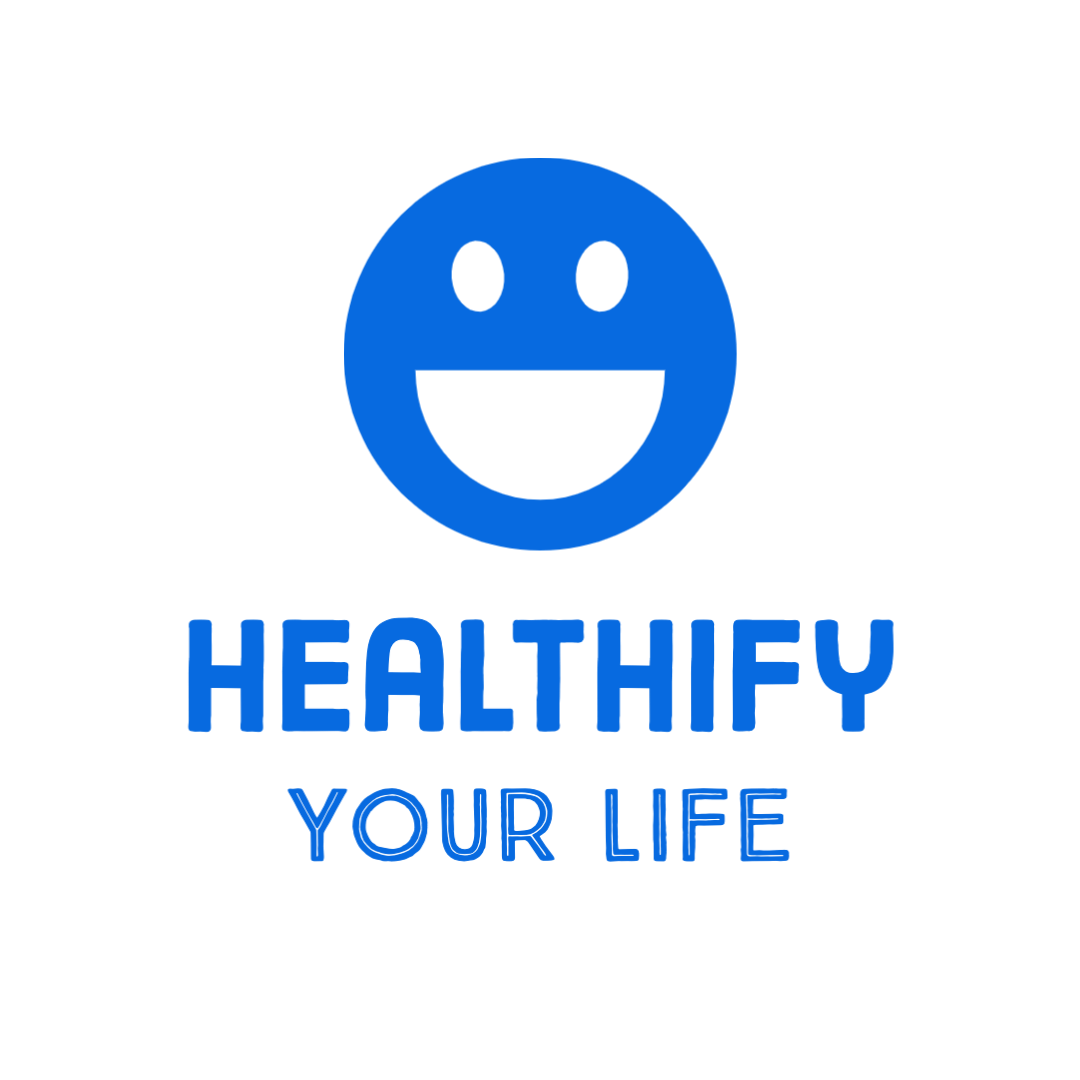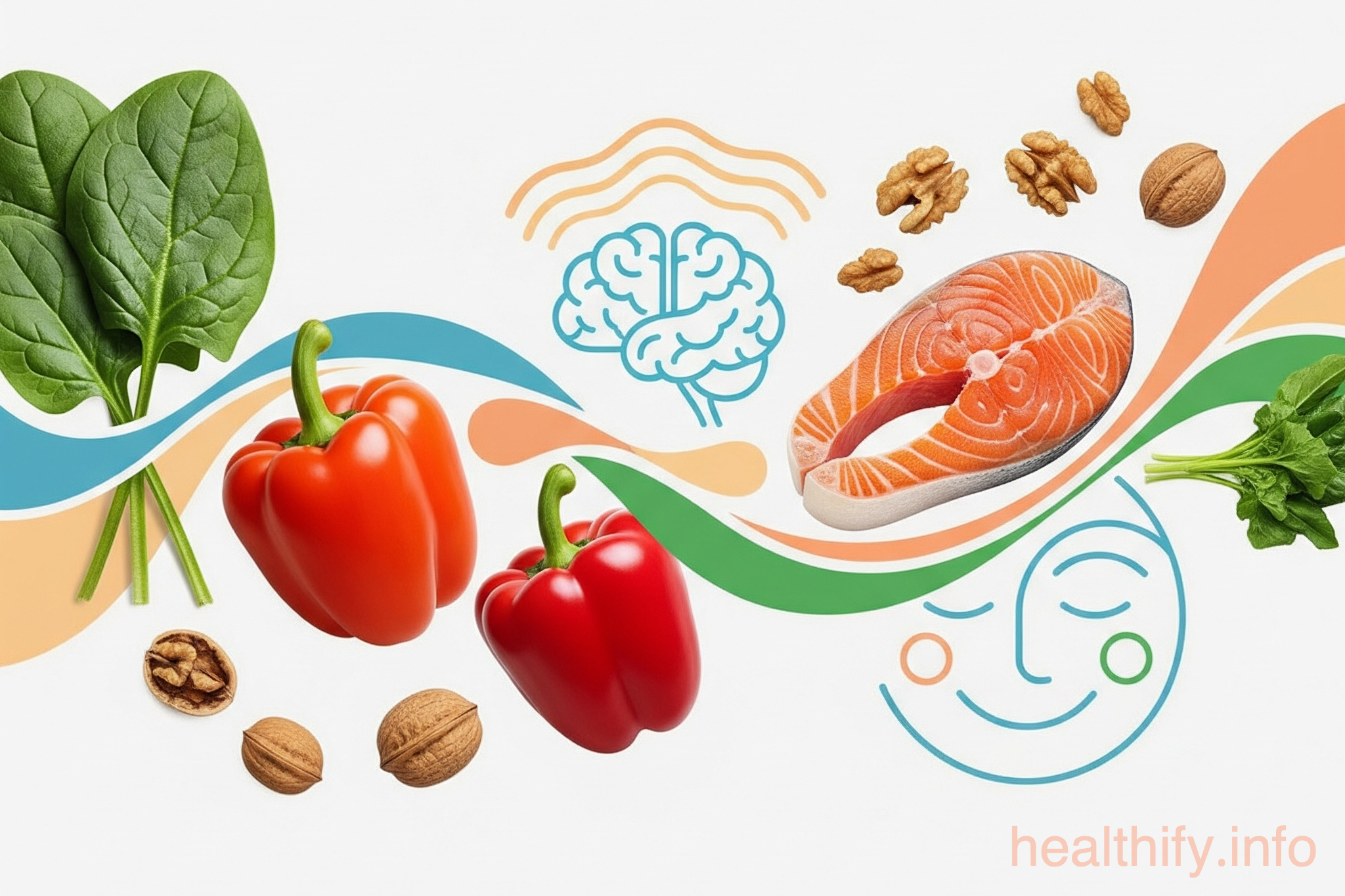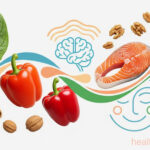Essential Nutrients for Mental Health
Good nutrition is vital to our overall physical and mental health. What we eat and drink can have a significant impact on our mood, energy levels, and cognitive function. In recent years, research has shown that specific nutrients play a crucial role in maintaining good mental health, improving symptoms of anxiety, depression, and other mental illnesses. In this post, we will explore some of the essential nutrients for mental health, their benefits, and how you can incorporate them into your diet.
Vitamin D
This widely recognised vitamin serves more purposes than are commonly believed. While it is essential for strong bones and immunity, it is also commonly referred to as the “sunshine” vitamin since it is produced in the skin when exposed to sunlight. Interestingly, a deficiency of this vitamin has been linked depression. (1)
It is estimated that roughly 1 billion individuals worldwide are affected by a deficiency in vitamin D, with approximately 50% of the global population experiencing insufficient levels of this important nutrient. (2) This makes it one of the most important vitamins to optimise.
Research has shown that this vitamin can be particularly effective in addressing Seasonal Affective Disorder, a type of depression that affects individuals during the winter months in the northern hemisphere. This is hypothesised to be due to decreased sunlight exposure and subsequent low vitamin D production. (3)
If you are already receiving adequate amounts of direct sunlight on your skin daily, it’s possible that you may not significantly benefit from vitamin D supplementation. However, wearing sunscreen may block vitamin D synthesis in the skin, at least partially. Previous research suggested that Vitamin D synthesis could be blocked by sunscreen by 95%, however more recent research suggests low SPF sunscreens have little effect on Vitamin D levels. (4) Unfortunately there has been no research on high-SPF sunblock, so we can only speculate whether or not synthesis is affected.
Vitamin D Supplements
It is recommended that you get your levels tested with your physician, so you can track your progress. 1000 IU is generally a good maintenance dose to be taken on a daily basis, but in cases of deficiency or depression, higher doses may be needed.
You may notice that you have more energy after taking your daily supplement, as dopamine levels can be increased, so it is best to take it in the morning.
There are multiple forms available, the most common of which is Vitamin D3 isolated from lanolin (sheep’s wool), however there is also a vegetarian/vegan version made from lichen. Another alternative is Vitamin D2 which is made from various mushrooms. You may wish to try the various forms to figure out what works best for you.
Magnesium
This well-known dietary mineral boasts a range of functions beyond its commonly known benefits. Deficiencies in magnesium are prevalent in developed countries, underscoring the importance of ensuring optimal levels of this mineral in the management and prevention of mental health issues.
Deficiencies can also be caused by diabetes or other conditions. Excess calcium intake also contributes to low magnesium as the two compete for absorption. Apart from a lack of magnesium contributing to depression and anxiety, without enough, blood pressure can be elevated and insulin sensitivity decreased, possibly leading to more serious health consequences down the track.
Mechanisms: Magnesium has a calming, stabilising effect on the brain, acting in a similar way to lithium. It helps to facilitate serotonin neurotransmission, as well as mildly binding to GABA-A receptors like a mild natural tranquilliser. Magnesium is also an NMDA antagonist, a mechanism which is neuroprotective, and which is being investigated as having antidepressant effects.
Dosage and forms: When it comes to magnesium supplements, it’s important to choose the right form and dosage to get the most benefits. Magnesium L-Threonate is the most effective form for the brain, as it easily crosses the blood-brain barrier and helps improve memory, cognition, and mental acuity. If you’re looking for a more calming effect, Taurate and Glycinate are worth trying, while Malate and Citrate are good options if you prefer a less tranquilizing effect. Just be aware that these last forms may produce a mild laxative effect, so adjust your dosage accordingly.
Omega-3 Fatty Acids
Omega-3’s refer to two essential anti-inflammatories for the brain and body called EPA (eicosapentaenoic acid) and DHA (docosahexaenoic acid). These omega-3 fats are usually found in fish and phytoplankton and are available in fish oil as well as vegan algal oil supplements. There is also Flaxseed oil which is more traditionally used by vegans and inefficiently converts into EPA/DHA but it is recommended to use the Algal oil if you are vegan, because taking DHA and EPA directly is much more effective. It appears to notably improve mood in people with major depression. (5)
Mechanisms: EPA seems to be the most effective omega-3 fatty acid for improving mood but DHA supports brain structure.
Dosage: In general, 250mg of combined EPA and DHA is the minimum which can easily be obtained from fish intake alone. The American Heart Association recommends 1000mg daily.
In a study, 1g of EPA demonstrated the the best antidepressant effect. You may need to experiment to find the right dose for you. Current evidence supports the finding that omega-3 with EPA ≥ 60% at a dosage of ≤1 g/d would have beneficial effects on depression. (3)
B Vitamins
When it comes to mental health, a good B-complex supplement is recommended at first as B-vitamins play a crucial role in maintaining optimal brain function.
However, if this doesn’t help, it may be better to be more targeted in treating your issues.
Outside the USA it can be difficult to find a sufficiently potent product in the right forms to be helpful and effective. Therefore I recommend these forms:
Vitamin B12
Vitamin B12 supports energy production and is essential for methylation processes. Put simply, methylation helps us make neurotransmitters, such as dopamine, serotonin, adrenaline, norepinephrine and melatonin. Certain groups are likely to be deficient in B12, such as vegetarians and especially vegans due to the fact that fish, meat, poultry, eggs, and dairy products are the main dietary sources.
Forms: There are different forms of Vitamin B12 (which is cobalamin from the metal element cobalt):
- Cyano-cobalamin – this is the cheapest and most common form of B12 found in most mainstream supplements and is actually bound to the toxic chemical cyanide which stabilises it. Although we get natural cyanides in some foods and the amount contained in this form is considered negligible, any amount of toxic chemicals taken on a daily basis is not ideal, and while we may not notice immediate side effects, it’s unknown if it affects health long-term.
- Methyl-cobalamin – this is the active co-enzyme and methylated form and will contribute more to energy and neurotransmitter production. It also assists with the creation of blood cells and brain development in childhood. It is arguably the best supplemental form and good for both deficiencies and health/mental health optimisation.
- Adenosyl-cobalamin (AKA dibencozide) – this is the other co-enzyme form, a deficiency of which disturbs metabolism and formation of myelin which is essential for memory. As it has a different but essential role distinct from the Methyl form above, it is highly recommended to supplement both the methyl and adenosyl forms of B12. (4)
- Hydroxo-cobalamin – this is the injectable form your doctor will normally use in cases of pronounced deficiency. It is less commonly available as a supplement and supports production of both methyl and adenosyl forms, depending on various factors such as individual genetics, diet, and gut health.
Dosage: 1-2mg (1000-2000mcg) per day sublingually (dissolved under the tongue). For pronounced deficiency, up to 3mg (3000mcg) can be taken. A combination of Methyl & Adenosyl is recommended.
Vitamin B₆
This essential vitamin is also essential for methylation and helps convert dopamine and serotonin from its precursors in the body and along with Vitamin B12 keeps homocysteine levels in check. It may also improve memory and dream recall.
As to which form is best, Pyridoxine Hcl is recommended. The phosphorylated forms such as Pyridoxal 5’ phosphate (PLP) and pyridoxamine 5’ phosphate (PMP) get dephosphorylated back into pyridoxine; therefore there is no scientifically proven benefit to using these other forms. (5)
Dosage: The minimum intake is 1.3mg per day for adults, and the tolerable upper limit is 100mg per day for adults. It is recommended to start low and increase if needed. It is cautioned not to exceed the tolerable upper limit, as although normally safe, excessive sustained doses can lead to toxicity.
Vitamin B9 (Folate) and SAMe
Folate has an essential role in the methylation process. Folic acid is the synthetic form that through a long process forms 5-MTHF (5-methyltetrahydrofolate) or L-methylfolate. Many people have a genetic mutation that prevents this transformation, but even without this mutation it is more optimal for the body to just supplement with the active form.
Folate is involved in creating S-Adenosyl Methionine (SAMe) indirectly in the body. As such, folate supplements show similarities to the SAMe supplement.
What does SAMe do?
SAMe supplements are often used to treat depression and anxiety. They are thought to work by increasing levels of neurotransmitters in the brain such as serotonin and dopamine.
However excessive or large doses of SAMe on its own has recently shown some evidence of carcinogenicity (potentially cancer causing) which is why I do not recommend this supplement. However in the natural and low amounts obtained by reasonable supplementation of folate in case of deficiency or non-optimal levels there is unlikely to be any such risk.
Keep in mind SAMe is formed naturally and used in the body and has plenty of benefits at normal levels. Creatine and trimethylglycine (TMG) also support SAMe by an alternate pathway.
SAMe in the body is usually synthesised from the amino acid L-methionine that you get in most proteins, so if you already have a high protein intake from any meats, fish, chicken and eggs, you should be getting plenty of it already. However you can still be low in folate on such a diet.
For vegetarians and vegans, plant based proteins often have less protein density so it is a good idea to calculate how much protein you are getting, or simply buy a plant based protein powder. Some good protein sources are peas, hemp seeds, nutritional yeast, soy, and even rice (Note: I do not recommend soy protein for men as it is estrogenic and works against testosterone).
Zinc
Zinc is an essential mineral for the human body. It plays a role in many different processes including immunity and is also essential for proper brain development and function. It is involved in the synthesis of neurotransmitters, and helps to protect brain cells from damage. It even improves testosterone levels in men, which in itself is beneficial for mood.
Low levels of zinc have been associated with depression, and zinc supplementation has been shown to improve mood in both depressed and healthy individuals. Zinc deficiency has been linked to impaired cognitive function, and zinc supplementation has been shown to improve mental performance in both children and adults.
Mechanisms: The antidepressive effects of zinc are believed to be mediated by an increase in BDNF, which has been observed in the blood of depressed subjects given 30mg elemental zinc over the course of 3 months compared to placebo (6).
Zinc is also an NMDA antagonist (7), similarly to Magnesium. NMDA antagonists are under investigation as novel antidepressants.
Dosage: For depression – 30mg Zinc gluconate per day is recommended as used in this study. The brand used was Nature Made.
Normal doses are 5-10mg for daily health maintenance, 25-45mg for those at risk of zinc deficiency.
Superloading with up to 100mg per day is safe for 2-4 months only. Never superload when you have any risk factors for stroke or after a stroke. 40mg daily is the official Tolerable Upper Limit (UL).
Conclusion
You should now have a good sense of the first steps in your mental health journey. If you found this article helpful or have any comments or experiences of your own, please don’t hesitate to comment below!





